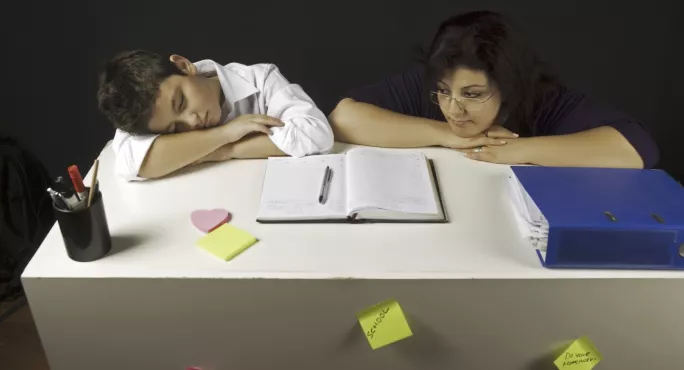- Home
- ‘How can students become independent learners if their teachers are held responsible for all their results?’
‘How can students become independent learners if their teachers are held responsible for all their results?’

How are we going to help pupils to become independent learners if all the responsibility for their progress is held at their teachers’ doors? I will put this question another way: how can pupils develop an understanding that what they achieve is a result not just of aptitude and talent, but also of hard work and resilience? How can pupils grow up into responsible adults if they are not given the opportunity to feel the consequences of their own failure when, distracted by the myriad opportunities for leisure which are so readily available to them, they fail to put enough time and effort into their school work?
I asked myself these questions recently when I heard the following cautionary tale. Facing the prospect of a book monitoring exercise by her senior leadership team, a teacher was seriously contemplating visiting the home of a Year 8 pupil to collect his book so she could mark it to provide evidence that all her pupils’ work was properly assessed. This pupil had been away from school for three weeks. The teacher was terrified she would be criticised for inadequate monitoring of his progress.
I have not made this story up. Ridiculous as this situation is, it is a marker of the inversion of power relations in schools, where all the responsibility for pupil progress and achievement is put at the teacher’s door. If pupils haven’t made the required progress (see my earlier column on the myth of linear progress: How many perfectly good teaching careers are ruined because we treat pupils as data not as individuals?) then it is the teacher who takes the blame.
Another true tale: teachers in one school are categorised (good, requires improvement, etc) on the basis of the quality of the pupils’ written responses to the teachers’ comments in their books. Yes, teachers’ competence is being judged on whether their pupils respond in whole sentences and in sufficient detail to the teachers’ marking.
Then we have the practice of teachers not only marking the latest piece of their pupils’ work, but also checking whether the pupils have, in their most recent work, incorporated the advice they were given on their previous assignment. The image of teachers desperately flicking pages, trying to find their last comment, re-reading a pupil’s previous assignment, then writing further extensive feedback, fills my mind with dread. It makes a mountain out of a molehill. It is no wonder so many teachers dread book inspections.
There is a saying - big fleas have little fleas upon their backs to bite ‘em. It is a truism remarkably apt for the working conditions in too many schools today, where nothing, apparently, has been done - no differentiation, no effective assessment, no careful thinking about teaching and learning strategies - unless it is written down and available for inspection, either by the senior leadership team or by inspectors.
The absurdity of this situation should be apparent to all, but just in case it is not, let me explain. Teaching is a complex process. In the course of a 30-minute lesson, teachers will make thousands of decisions about how a topic should be taught and how pupils will learn. These decisions will be influenced by a whole host of intangible factors: the current mood of the class; the time of day (Monday morning has a different feel to a Friday afternoon); the questions the pupils ask; the teacher’s perception of pupils’ understanding and their misconceptions - these and a whole host of other factors will determine the decisions teachers make about how to support pupil learning most effectively in the time available.
Even a 30-page lesson plan could not incorporate the decisions teachers make each and every lesson - and nor should it. So much depends on teachers’ professional knowledge and expertise. The most effective form of differentiation, for example, comes from the quality of a teacher’s questioning of pupils - is anyone seriously suggesting every teacher intervention is tabulated, noted and made available for inspection by a third party?
But that is what it feels like to too many teachers. Mountains of evidence are being produced “just in case”. This is corrosive - it corrodes professional relations between teachers and managers in schools because nothing is taken on trust and because, too often, all teachers, regardless of experience and/or expertise, are required to document their teaching practice to the same degree, and in mind-numbing detail.
My final thought is this: the essence of thought is to make connections. The more separate boxes in a lesson planning form, the less likely it is that effective connections will be made between the topic, the teaching approach, the assessment strategy and so on - because boxes separate rather than integrate. The more teachers document their practice, the less time they have for deep thought and consideration of what their practice should actually be. Is this really what we want? And is that really the way we support effective teaching and learning in our schools?
I think not.
Dr Mary Bousted is general secretary of the Association of Teachers and Lecturers. She tweets at @maryboustedATL
Put your point across on TES Community
Want to keep up with the latest education news and opinion? Follow TES on Twitter and like TES on Facebook
Keep reading for just £1 per month
You've reached your limit of free articles this month. Subscribe for £1 per month for three months and get:
- Unlimited access to all Tes magazine content
- Exclusive subscriber-only stories
- Award-winning email newsletters



